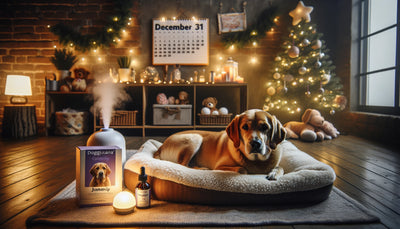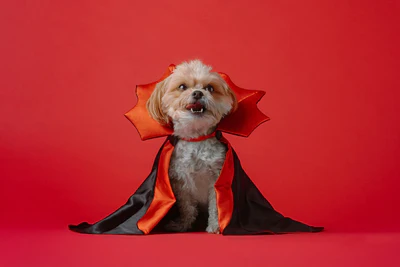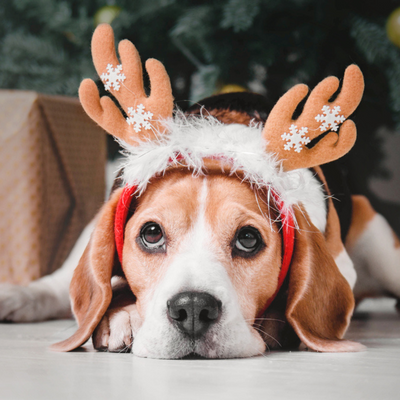We love and treat our pets like family. We share our homes, our hearts, and sometimes even our beds with our pets. It makes sense that we would want to share our food with them as well.
With the holidays quickly approaching, it’s important to know which foods your pets can and can’t have in order to save an emergency trip to the vet and a big dent in the pocketbook. Here are some do’s and don’ts for feeding your pets human food.
DOS
These foods are safe for both dogs and cats to eat (in moderation, of course!)*
- Salmon - Cooked, boneless salmon is a safe and healthy food for your cat or dog. Salmon is a great source of omega-3 fatty acids, which are known to reduce inflammation and may help keep your pet’s skin and fur healthy.
- Eggs - Cooked eggs are a great source of vitamins, minerals, and protein. Bacteria such as Salmonella can spread from pet to owner, so it may be best to avoid raw eggs.
- Lean Beef - Plain, cooked, without any added sauces or seasonings. Beef is an excellent source of protein and many important vitamins and minerals.
- Chicken - Chicken is a common ingredient in most pet food and is an excellent source of protein. ALWAYS remove the bones before feeding to your pet, as these are a choking hazard. The skin should also be removed to avoid extra fat. Refrain from feeding raw chicken to prevent Salmonella.
- Turkey - Plain, boneless, skinless turkey without seasonings or stuffing such as onions and garlic, is safe.
- Pork - Cooked pork without added spices, seasonings, or sauces is safe. However, processed forms such as ham and bacon should not be fed to dogs as they are high in salt.
- Broccoli - Broccoli, raw or cooked, is a great source of antioxidants for your cat or dog. However, too much may irritate a dog’s digestive system, so feed in moderation.
- Peanut Butter - Plain, unsalted peanut butter makes a great treat. But make sure to limit, as peanut butter can be high in fat and calories, which can lead to weight gain.
- Carrots - Carrots are a great source of vitamins, minerals, and fiber. They make a great treat! Carrots, raw or cooked, should be cut up into small pieces to avoid choking.
- Watermelon - Safe as long as it does not contain the rind and seeds. Low calorie and packed with nutrients such as vitamins A and C.
- Oatmeal - Plain, not flavored, oatmeal provides lots of fiber, as well as some vitamins and minerals.
- Bananas - High in fiber, vitamins, and minerals, bananas are great mashed up in your pet’s food or a few slices as a treat.
- Pumpkin - Pumpkin is low in calories, but rich in essential vitamins and minerals. Plain, canned pumpkin is a great food for pets, especially those that have digestive issues or abnormal stools.
- Blueberries, Strawberries, Blackberries - These berries are great, low calorie treats as well as being rich sources of disease-fighting antioxidants, vitamins, minerals, and fiber. Just make sure to cut them up in bite-size pieces to avoid choking.
- Apples - Apples that have been sliced are safe and healthy, as well as provide antioxidants, vitamins, minerals, and fiber. Make sure you remove the skin before feeding it to your cat.
*Some pet parent’s do put their furry friend on a raw food diet. This requires caution and preparation, so it is best to feed cooked meats and consult your veterinarian when it comes to raw.
DON’TS
These foods should never be fed to cats or dogs and some could be potentially fatal.
- Chocolate - Chocolate contains theobromine and caffeine, two stimulants that are toxic to dogs and cats. Dark chocolate and baker's chocolate are more dangerous, as they contain higher levels of the substance. Chocolate can cause excessive thirst, irregular heart beat, seizures, and even death.
- Coffee/Soft Drinks - Caffeine, whether in coffee or soda, can be dangerous for your pet. Symptoms of caffeine poisoning include restlessness, rapid breathing, heart palpitations, and muscle tremors.
- Avocados - Avocados contain a toxin called Persin. This is known to be very poisonous to dogs and cats and can cause fluid accumulation in the lungs and chest. No sharing your guacamole with your gato.
- Chewing Gum/Foods Containing Xylitol - Xylitol is a sugar substitute that’s often found in candy, chewing gum, baked goods, and toothpaste. Symptoms of xylitol poisoning include vomiting, lethargy, and loss of coordination. Eventually, your dog may have seizures. Xylitol should be avoided for cats as well.
- Macadamia Nuts - While macadamia nuts have not been seen to adversely affect cats, they are toxic to dogs. Veterinarians and researchers have not identified what causes this, but even in small amounts they can cause weakness, especially in the hind legs, muscle tremors, vomiting, fever, and rapid heart rate.
- Grapes and Raisins - These contain toxic compounds that can potentially cause rapid kidney failure and death, even in small amounts. These are a big NO!
- Onions - Whether they're eaten cooked, raw, or in powder form. Onions contain N-propyl disulfide which can destroy an animal’s red blood cells, leading to anemia severe enough to require a blood transfusion.
- Garlic - Garlic contains chemicals called thiosulfates, which are toxic to dogs and cats. They could damage your pet’s red blood cells and lead to anemia.
- Yeast Dough - Extremely unsafe, as yeast cells produce alcohol as they ferment which may lead to alcohol poisoning if your pet consumes it.
- High Sodium Foods, Including Bacon - These should be limited, as excessive salt intake can lead to salt poisoning, especially if there is no water nearby. High doses of salt can cause tremors, high temperature, seizures, and even death. Definitely avoid if your dog has heart problems.
- Alcohol - As fun as drinking with your pet may sound, alcohol can cause difficulty breathing, coma, and even death in animals. Poor Fluffy will just have to drink her bowl of water.
- Nutmeg - Nutmeg contains myristicin, a compound that is toxic to dogs when consumed in large amounts. It may cause disorientation, increased heart rate, high blood pressure, dry mouth, stomach pain and seizures. Although they may have low amounts, it is best to avoid feeding your pet baked goods and other foods that contain nutmeg.
- Fat Trimmings, Skin, and Bones - The high fat content in meat trimmings and skin can cause pancreatitis in pets. Also, NEVER give your pet cooked bones. Cooked bones are softer which increases the chance of splintering. These are a major choking hazard!
What should you do if your pet eats something poisonous? Call your veterinarian or Pet Poison Helpline at 855-764-7661 for help immediately. The sooner a dog poisoning or cat poisoning is diagnosed, the easier, less expensive, and safer it is for your pet to get treated! It is also a good idea to keep hydrogen peroxide on hand in case your vet or the Pet Poison Hotline suggests inducing vomiting.
While this is not an exhaustive list, it does include many foods commonly found at holiday gatherings. As we indulge in our feasts, it’s natural to want to spoil our pets as well. Just make sure you don’t spoil the festivities with a sick furbaby!











